All parties involved in the alleged bribery scheme engulfing former Hong Kong official Patrick Ho have denied any involvement, after the Ugandan foreign ministry said it was erroneous to link its minister to Ho.
Ho, 68, was arrested in New York last weekend. He stands accused of facilitating multi-million dollar bribes destined for top officials in Chad and Uganda. The funds were transferred via Hong Kong and New York on behalf of a Chinese company to allegedly secure oil rights. If convicted, he faces 20 years in jail.
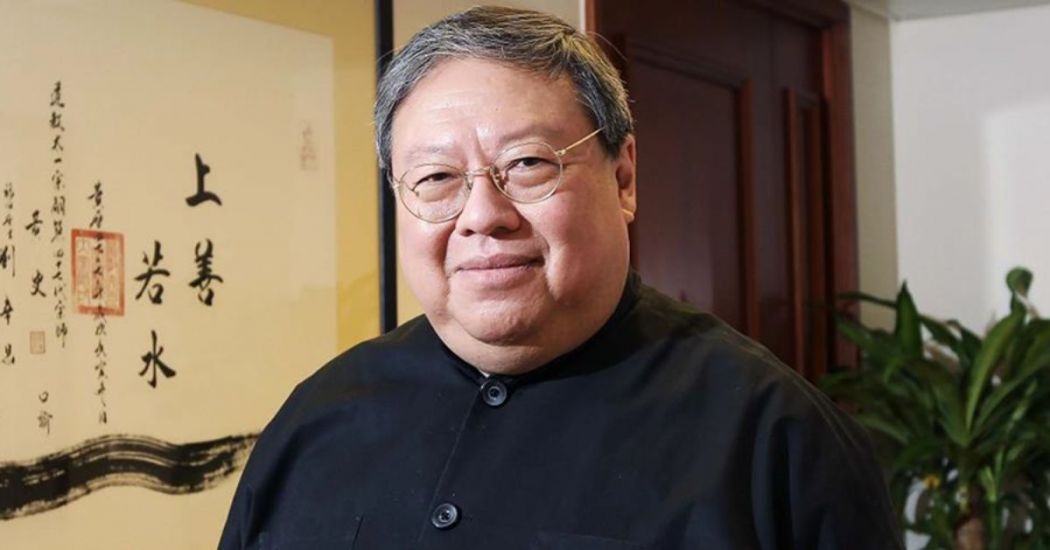
He allegedly facilitated a further US$500,000 (HK$3.9 million) to be wired as a bribe to an account designated by the Ugandan foreign minister Sam Kutesa, who had recently completed his term as the president of the UN General Assembly.
A former Hong Kong home affairs secretary, Ho held several titles at the United Nations. He was representing the Hong Kong-based NGO China Energy Fund Committee, which was funded by the company CEFC China Energy.
The NGO, the company, and the Chadian government have all denied bribery allegations.
Uganda’s Foreign Affairs ministry also issued a statement saying that it was “erroneous to insinuate or infer that Kutesa, from references made to him and CEFC in the said media stories, is linked to the bribery allegations”.
See also: Explainer: Patrick Ho’s bribery allegations – from top Hong Kong official to US police custody
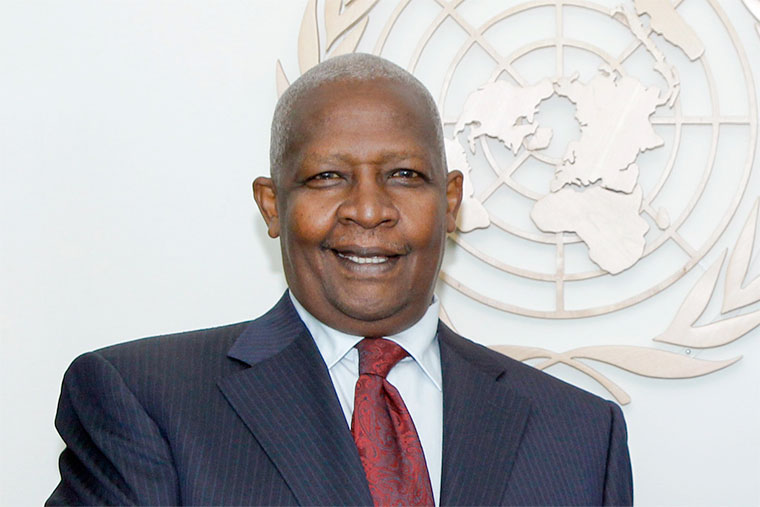
The ministry said Kutesa interacted with Ho in his official capacity as the President of the UN General Assembly. It said that, during the time, Kutesa also interacted and engaged with numerous organisations including civil society, media and the private sector.
“This engagement, a role undertaken by all the presidents of the General Assembly, is necessary for promoting the core objectives of the UN in the areas of development, peace and security as well as human rights.”
Bail application
In the alleged scheme to bribe the president of Chad, Cheikh Gadio, a former Senegalese top diplomat acted as a middleman. According to the Associated Press, Gadio remained incarcerated on a US$1 million (HK$7.8 million) bail. He will face electronic monitoring and is to remain under house arrest.
US court records showed that an order for medical treatment was approved for Ho on Monday, who is staying at the Metropolitan Correctional Center in New York.
A preliminary hearing date was set on December 20. Hong Kong’s Ming Pao newspaper cited sources as saying that Ho will apply for bail.
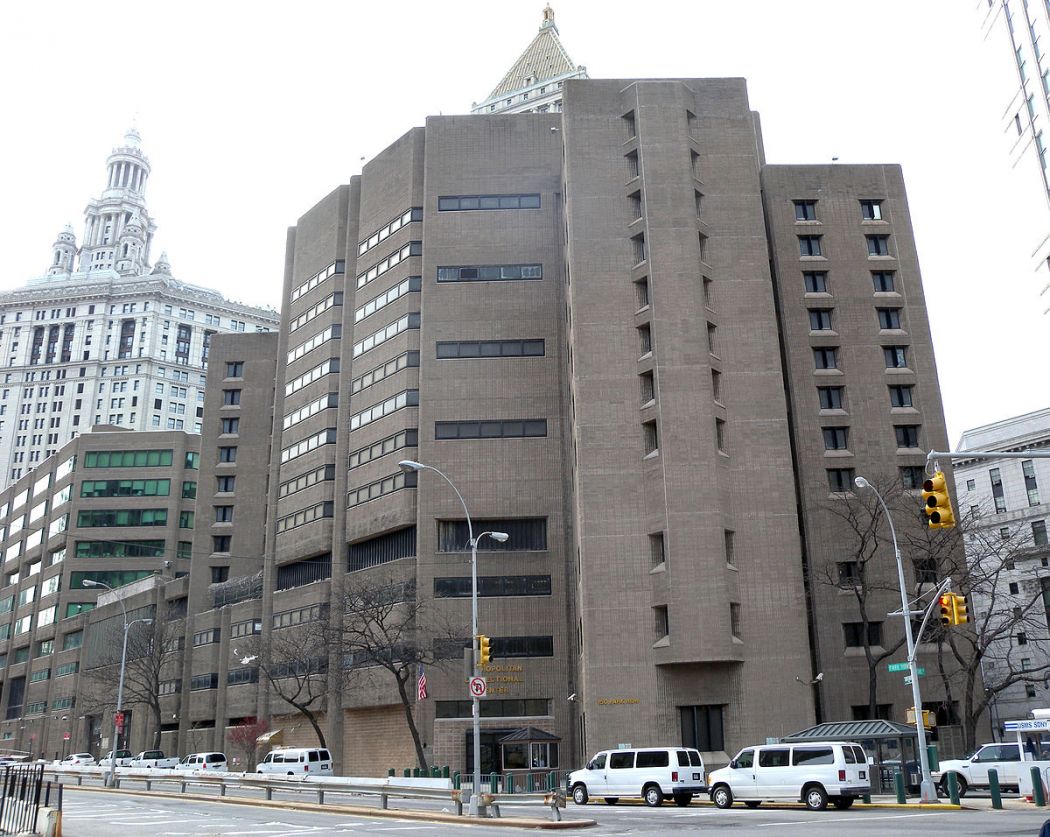
Jason Y. Ng, a New York-qualified attorney and member of the Progressive Lawyers Group, told HKFP that bail condition depends on several factors, including his danger to the community, previous convictions and risk of flight.
“Depending on how vigorously the prosecutor and the defense attorney argue, the federal judge will decide whether to ask the defendant surrender travel documents and/or be subject to electronic monitoring, curfew, etc.”
He said the trial will be a lengthy process: “Federal courts are notorious for delays due to mounting caseloads. [It is] not uncommon for defendants to wait for months or even longer.”
Ho was arrested using the Foreign Corrupt Practices Act partly because he used New York’s banking system to wire money. Ng said the act has enormous extraterritorial reach and one can run afoul of US law by conducting discussions or other business activities on US soil or transferring funds via the US financial system.
“This case is a sobering reminder to everyone involved in infrastructure initiatives for the Chinese government… That you don’t need to be a US citizen or run a US-registered company to be caught by the FCPA,” he said.
‘Civil diplomacy’
Ho served in the Hong Kong government between 2002 and 2007 during the Tung Chee-hwa and the Donald Tsang administration.
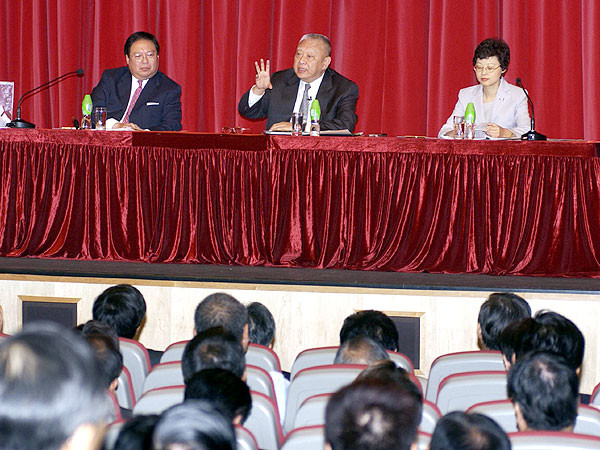
Both Tung and Ho spent a lot of time in the US conducting “civil diplomacy” after their terms in local government. Tung’s trusted aide Andrew Lo is the deputy-secretary-general of Ho’s NGO.
Tung, now a state leader, appeared on the red carpet to welcome US President Donald Trump when he visited Beijing this month.
After an anniversary event of his Our Hong Kong Foundation, Tung did not directly respond to reporters’ questions surrounding Ho.
“Think of what I just said,” he said. His speech mentioned that China had achieved a lot in fighting corruption over the past five years.
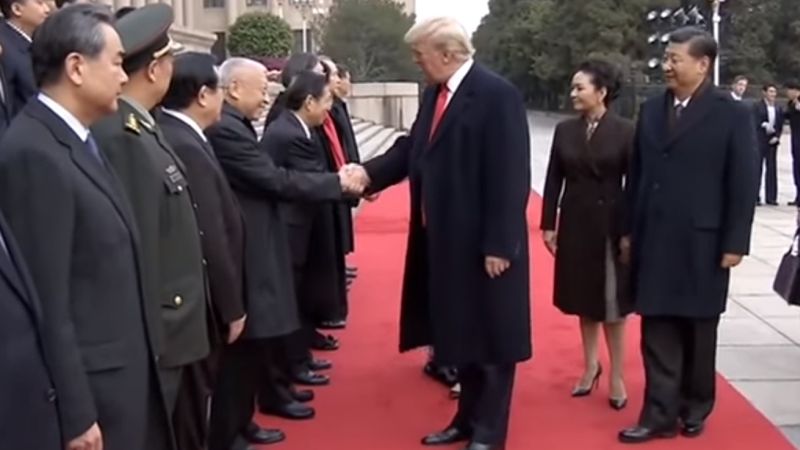
Brian Fong, associate director of the Academy of Hong Kong Studies at the Education University of Hong Kong, said Ho’s arrest formed part of a story of “collaborative politics” among Hong Kong elites over the past century.
“From the consultative structure in the British days, to the chief executive election committee and functional constituencies in the Chinese days – these are merely the carriers of such collaborative politics in different eras,” he told HKFP. “There is no autonomy in Hong Kong if these elites do not have any independent consciousness.”
Fong also said the incident may hint at a policy change of the US towards China.
